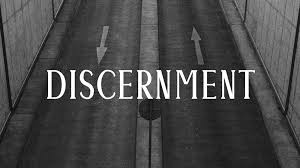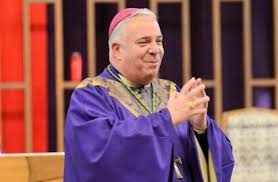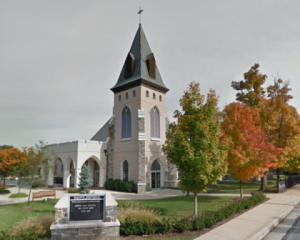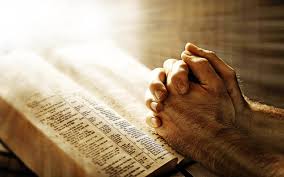Discernment 2: St. Monica and the Disciple Maker Index

Between May 9-11, the priests of the Archdiocese of Philadelphia gathered in Hershey, PA. We met with Archbishop Nelson Perez for a Priest Convocation. We have met like this before but this was the first time in several years that the Philadelphia presbyterate has done this. COVID prevented us from getting together as a brotherhood of priests.
I enjoyed the Hershey Priest Convocation. It was great re-connecting with priests with whom I have been stationed in the past and others I have not seen in a while. The liturgies, the prayer together, the fellowship, the food - including a little chocolate - was very encouraging and uplifting.

Initial ideas, insights, and plans on rolling out the results of the DMI were discussed in Hershey. I suspect that Archbishop Perez wanted the priests and pastors to gather some idea about the results first before distributing them to parishes.
Just before the Convocation, Catholic Leadership Institute sent an invitation to participate in three DMI webinars to the priests of Philadelphia. On May 19, I attended “Accessing Your Results.” This will cover accessing and reviewing our results, what to look for, how to interpret feedback correctly, as well as tips and resources for reviewing the information. On June 2, I’ll participate in “Common Challenges and Opportunities.” This webinar will focus on key areas of challenge and opportunity across parishes throughout the country. It will also showcase some common examples of parish strategies that have made a difference. Finally, on June 16, I’ll view “Discerning Actions.” This webinar will focus on how to turn our feedback into some actionable next steps.
As many of you know, recently St. Monica parishioners filled out the Disciple Maker Index (or DMI). We had set a goal of completing at least 200 questionnaires. Over 300 people completed the questionnaire. That is an outstanding achievement. It shows that the people of St. Monica are not only interested, they are also engaged and invested.
What is different about the DMI this year? Every parish in Philadelphia was encouraged to take part in the DMI. Fifteen other dioceses and archdioceses across the United States will also participate. This will provide valuable, detailed, professionally tabulated information. The Catholic faithful and hierarchy throughout the country will see the results. It’s somewhat unprecedented. 
The data on St. Monica will be provided sometime soon. After that, we will enter into a period of prayer, examination, and discernment….
- What does the raw data look like?
- What does it indicate about the various aspects of the parish? (Devotional, liturgical, temporal)
- We took the DMI in 2017, 2019, and not in 2020. What do the trend lines tell us?
Here’s the big one… How should St. Monica concretely discern and move forward?
- What is the Lord calling us to do now?
- What ideas have more of a long-range outlook?
- What are we being called to do differently?
- What activities/programs/ministries need to be more emphasized?
- Are there any that need to change or be discontinued or kept, but moved to other parishes?
- Are there things that we don’t have or do and should add?
In preparation for this, over the past few months, I have been reading two books on discernment. One is from Ascension Press and co-authored by Fr. Mike Schmitz. It is entitled, Pray, Decide, and Don’t Worry. The other is entitled, Discernment by Fr. Henri Nouwen.
What is discernment? What does God say it is? Discernment is the process by which “you may be filled with the knowledge of God’s will, spiritual wisdom, and understanding so that you may lead lives worthy of the Lord.” (Colossians 1:9-10) Nouwen says that this is a process that seems to be lacking in today’s world. He recalls a time when he was traveling around the world, writing books, giving retreats, and leading workshops. He thought he was doing all this to “help God.” Yet he knew he was restless. He was searching. He felt that he was stumbling.
God is a God who cares, heals, guides, directs, challenges, confronts, and corrects. So, discernment starts with listening to God. It means paying attention to God’s presence and reading the signs that He is giving in our lives. Nouwen sees people who are spiritually deaf. They don’t stop, get quiet and listen. Instead, they seek and create experiences that they think will make life worthwhile. They get involved in constant activity. Thus, concerns of the world occupy their time. The many sounds that surround them make it hard to hear the “still, small voice” through which God makes his presence known.
How do we learn discernment? Perhaps a place to start is the Bible. We’ll look at that next time. 


